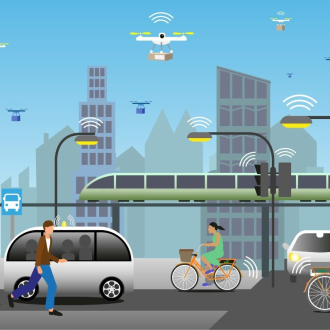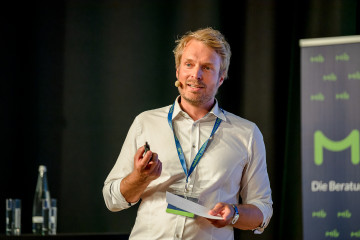
Navigating the future of urban mobility
Transitioning to cleaner and more sustainable modes of transportation, in addition to reimagining multimodal city landscapes, is essential to mitigating its impacts and is crucial for creating inclusive cities. Addressing these challenges requires collaboration among various stakeholders, including policymakers, car manufacturers, transportation agencies, urban planners, civic groups, and transit users.
In episode 25 of Campus 10178, the ESMT business podcast, Dr. Jörn Richert, CEO of the Mobility Institute Berlin (mib), joins host Tammi L. Coles to discuss innovations and challenges in urban mobility – today and tomorrow. Dr. Richert underscores the need for a holistic approach to mobility that addresses not only technological advancements but also societal perspectives, urban planning, and ethical considerations. Dr. Richert emphasizes the importance of social innovation in reshaping transportation systems to have ubiquitous, intermodal travel offers that encourages residents to choose sustainable, emissions-reducing alternatives to their cars. By embracing these elements, cities can create sustainable, inclusive, and people-centric urban mobility solutions.


